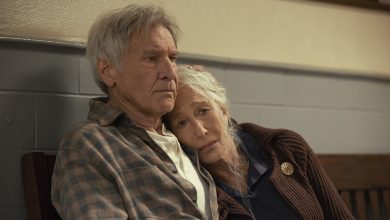Judge’s Fair Use Ruling for Anthropic: A New Era in Copyright Law

A recent ruling by a U.S. District Judge has deemed Anthropic’s use of copyrighted books for AI training as ‘fair use’, potentially setting the stage for a prolonged copyright battle.
Judge’s Fair Use Ruling in Favor of Anthropic: The Beginning of a Prolonged Copyright Dispute
A judge’s decision that Anthropic‘s use of copyrighted books to train its AI models qualifies as “fair use” marks the onset of what is likely to be a lengthy legal battle over one of the most contentious issues in today’s technological landscape.
Transformative Use and Legal Precedent
U.S. District Judge William Alsup ruled that Anthropic’s use of the books was “exceedingly transformative,” a key factor in determining the legality of using protected works without authorization. This ruling represents a significant step in addressing the fair use question in the context of generative AI systems.
Anthropic’s Response
An Anthropic spokesperson expressed satisfaction with the ruling, stating, “We are pleased that the Court recognized that using works to train LLMs was transformative — spectacularly so.” They emphasized that the purpose of copyright is to foster creativity and scientific progress, asserting that Anthropic’s LLMs aim to innovate rather than replicate existing works.
Ongoing Legal Challenges
Alsup’s ruling came in response to a lawsuit from a group of authors, including Andrea Bartz, known for her novels such as The Lost Night and The Herd. However, the judge also determined that Anthropic must face trial regarding its liability for downloading millions of pirated books from the internet, which were necessary for training its models.
The judge noted, “That Anthropic later bought a copy of a book it earlier stole off the internet will not absolve it of liability for the theft but may affect the extent of statutory damages.”
Implications for the Copyright Landscape
The authors’ attorney has not yet indicated whether an appeal will be filed. Anthropic utilized the books for its AI service, Claude. Numerous lawsuits have emerged challenging the use of copyrighted material in AI training models, including a recent case involving Comcast and Disney against Midjourney for its use of their characters.
See More ...
While some content creators express concern over the Anthropic ruling, they find some comfort in the fact that Anthropic may still be held accountable for how it accessed the millions of books.
The Authors Guild commented, “The decision allows the copying of millions of books for training, whether legally acquired or not; but if the books are not used for training and are simply downloaded and stored, that is not fair use.” They added that the court’s ruling on pirated books could influence future decisions, urging that AI model developers must license copyrighted content rather than resorting to piracy.
Future of Fair Use Legislation
There are numerous ongoing lawsuits targeting AI companies over their use of copyrighted material for training models. The determination of fair use is complex and case-specific, as outlined in Section 107 of the Copyright Act, which considers various factors such as purpose, nature, amount used, and market effect.
According to the U.S. Copyright Office, “Courts evaluate fair use claims on a case-by-case basis, and the outcome of any given case depends on a fact-specific inquiry.” The “fair use” question is unlikely to be addressed by Congress in the near future, leaving it to the courts to navigate the evolving landscape of technology.
Source: deadline.com



